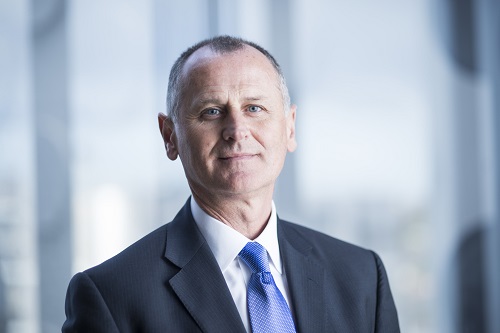
While the world might be seamlessly and constantly connected – both digitally and in terms of global trade – addressing shared problems on a global scale can be complex to say the least.
However, technology is helping change this, and universities are taking full advantage.
As organisations driven by effecting positive social change, many Australian universities are employing innovative technological solutions such as Artificial Intelligence, Virtual Reality and Blockchain to enhance how they deliver education and create solutions to some of society’s most pressing problems.
Another innovation helping universities find new solutions is cloud computing technology, which allows the instant access and transfer of information globally.
Earlier this month, Swinburne University launched its Data for Social Good Cloud Innovation Centre (CIC), which leverages the expertise of the university’s research institutes, which specialise in health, social innovation and ‘smart cities’.
The CIC – the only such centre in the southern hemisphere – is the latest addition to a global network of centres powered by Amazon Web Services (AWS) that share the company’s expertise and the solutions to the innovation challenges that address the public sector digital revolution globally.
‘Great value in interdisciplinary collaboration’
Professor Aleksandar Subic, Swinburne’s deputy vice-chancellor for research and development, said the new centre will also work with Swinburne’s Social Innovation Research Institute, which focuses on how communities and government sectors can prepare for challenges that come from digitisation and automation.
“The partnership between Swinburne and AWS that underpins the new cloud innovation centre brings together our research institutes as a single platform to provide capability, engagement and interdisciplinary collaboration,” Professor Subic told The Educator.
“We are now putting together interdisciplinary teams, including researchers from various disciplines, but also students from various disciplines because major challenges and issues require that kind of collaboration.”
Professor Subic said the University’s research institutes, launched two years ago, have established hundreds of partnerships that are working in domains of high relevance to the new centre.
“We’ve trialled and tested some of the approaches to engagement, impact-oriented research and inter-disciplinary collaboration in relevant areas. For example, both the data science and social innovation institutes have already established the social data analytics lab,” he explained.
“This lab has already tested how the data can be used to create invaluable insights and understandings about how communities are organised and how areas like welfare, aged-care, education and transport can be better organised, and how solutions to the problems facing these areas can be better developed.”
Helping citizens become agents of change
Professor Subic said the digital inclusion of citizens in this mission can help governments solve issues using a “citizen-centric approach”.
“Our institutes are already testing that work as part of their work and agenda. That now provides an excellent platform; we are working with Amazon Web Services, who are using that platform to underpin the CIC,” he said.
“This will be taken even further by engaging student teams across the whole education continuum to translate that experience and move it more into the domain of project-based learning.”
Vincent Quah, APAC regional head for education, research, and not-for-profit at AWS’, worldwide public sector, said AWS chose Swinburne due to its strong focus on innovation, and the success of its programs in delivering results.
“Swinburne has a strong innovation mindset. Some of the programs they’ve come up with shows that they have a strong innovation capability woven into them,” Quah told The Educator.
“It’s really an influence on the broader community, which comprises of the student and faculty community within Swinburne. From vocational education all the way to graduates and PhD students, they’ll be able to work on real-world challenges and address social good.”
A global approach to tackling major challenges
Professor Subic said the solutions developed out of the CIC will not only be open source and shared with the broader community but transferrable globally, to other nations experiencing similar challenges.
“This means that a greater impact can be achieved. By working together, we can also have a greater capacity to find better solutions to the problems we’re facing,” Professor Subic said.
He added that the University is also eager to establish greater staff and student mobility between the innovation centres and even offer joint PhD programs, where students and staff work on longer-term research challenges and deeper opportunities.
“Those PhD students can gain experience in those institutions or across a number of institutions. This global interaction can be a very valuable ingredient in this whole network,” he said.
Quah said the idea of addressing social good is such a critical topic that many other universities across Australia will be likely to explore similar centres and initiatives.
“One reason why this initiative is so special is that we are using big data to understand the challenges bought about by the accelerating digital revolution and rapid population growth in Australia,” Quah explained.
“In working with these organisations that share these challenges, we’re looking at how we can identify the need for new and changing citizen services. Each centre might have its own area of focus, but together they share a massive portfolio of solutions and challenges that are being actively addressed.”


